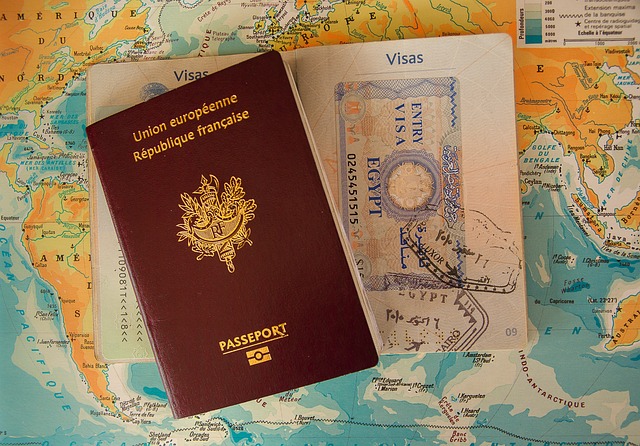Study Abroad Guide
Why Choose EDVANCE for Studying Abroad?
We (EDVANCE) provide expert guidance on navigating the complex process of studying overseas, including finding suitable programs, managing applications, securing visas, arranging accommodation, and offering support throughout your journey, especially if you are unfamiliar with the international education landscape.
1. Finding a Suitable Program
The first step in studying abroad is finding a program that aligns with your academic and personal goals. Consider these factors when researching:
a. Academic Interests and Career Goals
- Research universities and courses: Identify universities that offer strong programs in your area of interest. Explore global rankings, faculty expertise, research opportunities, and internship prospects.
- Course structure: Look at the curriculum and see if it offers flexibility, practical experience (like internships or study abroad options), and aligns with your future career aspirations.
b. Location and Culture
- City vs. Rural: Consider whether you’d prefer living in a bustling city with diverse opportunities or a quieter, smaller town.
- Language: Determine whether the program is offered in a language you are comfortable with or if you are open to learning a new language.
- Cultural Fit: Research the culture of the country or city to make sure it aligns with your preferences for lifestyle, safety, and social environment.
c. Scholarships and Financial Aid
- Many universities offer scholarships specifically for international students. Be sure to look into these early, as they may have separate application processes or deadlines.
d. Accreditation
- Ensure the program is accredited by recognized agencies. This ensures the degree is recognized globally and can impact future employment or educational opportunities.
e. Duration and Flexibility
- Check if the program length (1-year master’s, 4-year bachelor’s, etc.) suits your goals and whether the university offers flexibility in terms of deferring admissions or switching programs if needed.

2. Managing Applications
Once you have shortlisted suitable programs, you’ll need to begin the application process. International applications can vary, so take the time to follow the specific requirements of each program.
a. Gather Required Documents
- Transcripts: High school or previous university transcripts, translated if necessary.
- Standardized Test Scores: Some programs require standardized tests (e.g., TOEFL/IELTS for English proficiency, GRE, GMAT for certain graduate programs).
- Recommendation Letters: These are typically required for graduate programs, sometimes undergraduate programs, and usually need to come from professors or employers.
- Personal Statement/Statement of Purpose: This essay should outline why you want to study in the program, your future goals, and how the program aligns with them.
- CV/Resume: Especially for graduate programs, highlighting relevant academic, research, or work experience.
b. Meet Deadlines
- Ensure you are aware of the application deadlines for each program, as these can vary significantly. Start early to allow time for gathering documents, writing essays, and securing recommendation letters.
c. Apply to Multiple Programs
- Apply to multiple programs to increase your chances of acceptance. While it may seem like extra work, it gives you more options in case your top choices don’t come through.
d. Application Fees
- Most universities charge application fees, which can range from $50 to $150 or more. Some universities offer fee waivers for applicants from certain regions or circumstances, so check if you’re eligible.
3. Securing a Visa
Once you’ve been accepted into a program, the next critical step is securing your student visa. Visa processes vary by country, but here are the general steps:
a. Determine Visa Requirements
- Proof of admission to a recognized institution.
- Proof of sufficient financial resources to cover tuition, living expenses, and travel costs.
- Proof of English proficiency (or the language of instruction).
- Health insurance coverage for the duration of your stay.
- Criminal background check (for some countries).
b. Apply for the Visa
- Follow the specific visa application process for your destination country. Some countries allow you to apply online, while others require you to visit an embassy or consulate.
- You’ll likely need to schedule an interview at the consulate or embassy, so be prepared for questions about your educational background, your plans, and your financial situation.
c. Timing
- Visa processing times can vary widely. Apply as early as possible, ideally 3-4 months before your intended departure date.
d. Attend Pre-departure Orientation
- Some embassies or universities provide pre-departure orientations. These can help you better understand what to expect in terms of cultural differences, living arrangements, and legal matters in your host country.

4. Arranging Accommodation
Finding accommodation is an essential part of your pre-departure preparations. Many universities offer on-campus housing for international students, but off-campus options may also be available.
a. On-Campus Housing
- Most universities offer dormitories or student apartments for international students, which are often the most convenient and secure option.
- Apply for housing early, as these accommodations can fill up quickly.
b. Off-Campus Housing
- If on-campus housing isn’t available or you prefer more independence, look for off-campus rental options. Websites like Airbnb, Craigslist, or university-specific housing platforms are good places to start.
- Research the local housing market carefully. Some cities may have competitive rental markets, so plan your search well in advance.
c. Cost Considerations
- Be sure to factor housing costs into your overall budget. On-campus housing may be more expensive, but it often includes utilities, internet, and meals.
- Off-campus housing may have lower rent but could involve additional costs like utilities and transportation.

5. Managing Finances
Studying abroad can be expensive, but there are various ways to manage costs:
a. Budgeting
- Create a budget that includes tuition fees, accommodation, living expenses, travel, and incidentals.
- Include a buffer for unexpected expenses like medical emergencies or travel during breaks.
- Use a student bank account to minimize international transaction fees.
b. Scholarships and Funding
- Look into scholarships, grants, and fellowships for international students. Many universities, governments, and private organizations offer funding opportunities.
- Consider part-time work (if permitted) to supplement your finances. Many countries allow students to work a limited number of hours during the semester.
6. Packing and Pre-departure Planning
Once everything is sorted, it’s time to prepare for your journey:
a. Pack Smart
- Research the climate and pack appropriate clothing. In some countries, you'll need to dress formally for school.
- Don’t overpack, as you can always buy necessities once you arrive. However, make sure to bring essential items like medicines, adapters for electrical outlets, and any required academic materials.
- Keep important documents (passport, visa, admission letter, financial records, etc.) in your carry-on bag.
b. Cultural Preparation
- Familiarize yourself with the country’s culture, etiquette, and daily life.
- Learn basic phrases in the local language (even if the program is in English). It can help you with day-to-day interactions and make a positive impression.

7. Settling In
Once you arrive, it’s important to stay connected and seek support as you adjust to your new environment:
a. Orientation Programs
- Many universities offer orientation sessions for international students, which can help you understand your new academic system, meet fellow students, and get accustomed to the local culture.
- Take advantage of these programs to build a support network and access resources like counselling or career services.
b. Academic Support
- Stay in touch with academic advisors and professors if you need help with your studies or adjusting to the academic culture.
- Join student groups or societies related to your interests to meet people and build a community.
c. Health and Well-being
- Make sure you have the necessary health insurance and know where the nearest healthcare facilities are.
- Stay in touch with friends or family back home to avoid feeling isolated.
- Take care of your mental and physical health—studying abroad can be stressful, but it’s important to take breaks and find a balance.

Good luck, and enjoy the adventure of studying abroad with EDVANCE!
